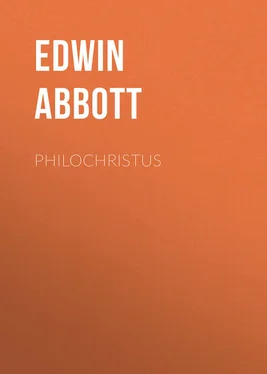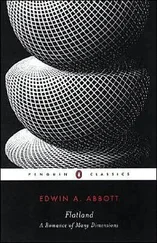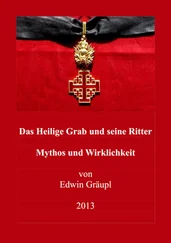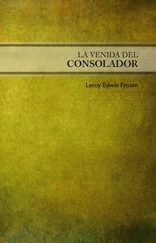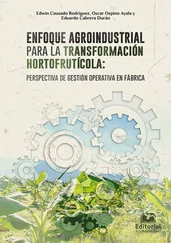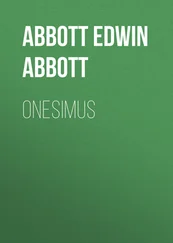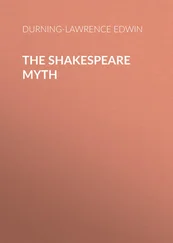Edwin Abbott - Philochristus
Здесь есть возможность читать онлайн «Edwin Abbott - Philochristus» — ознакомительный отрывок электронной книги совершенно бесплатно, а после прочтения отрывка купить полную версию. В некоторых случаях можно слушать аудио, скачать через торрент в формате fb2 и присутствует краткое содержание. Жанр: foreign_antique, foreign_prose, на английском языке. Описание произведения, (предисловие) а так же отзывы посетителей доступны на портале библиотеки ЛибКат.
- Название:Philochristus
- Автор:
- Жанр:
- Год:неизвестен
- ISBN:нет данных
- Рейтинг книги:5 / 5. Голосов: 1
-
Избранное:Добавить в избранное
- Отзывы:
-
Ваша оценка:
- 100
- 1
- 2
- 3
- 4
- 5
Philochristus: краткое содержание, описание и аннотация
Предлагаем к чтению аннотацию, описание, краткое содержание или предисловие (зависит от того, что написал сам автор книги «Philochristus»). Если вы не нашли необходимую информацию о книге — напишите в комментариях, мы постараемся отыскать её.
Philochristus — читать онлайн ознакомительный отрывок
Ниже представлен текст книги, разбитый по страницам. Система сохранения места последней прочитанной страницы, позволяет с удобством читать онлайн бесплатно книгу «Philochristus», без необходимости каждый раз заново искать на чём Вы остановились. Поставьте закладку, и сможете в любой момент перейти на страницу, на которой закончили чтение.
Интервал:
Закладка:
Yet another trouble was added to me. For as I grew older and understood more of the ways of men and perceived the thoughts of men’s hearts, it seemed to me a strange and horrible thing that the Law of the Lord should be cut off from the greater part of the Lord’s people: so that it was a current saying with the Rabbis that the common people were an accursed rabble which knew not the Law: insomuch that one of the most pious of our teachers, even Hillel the Great, said that no boor could be a sin-fearer, and that the people of the land (for by that name they called the common people) could not be pious. This, I say, seemed an horrible thing: yet indeed I could not deny that the Scribes must needs be right, and that the people of the land could not be pious, so long as to be pious meant to be obedient to the light precepts of the Law, such as the laws concerning the exact observance of the Sabbath, and concerning purifications, and concerning the consumption of nail-parings, and the like. For the knowledge of all these things was not to be obtained save by men of leisure, that could give their time, and settle their minds to the study of such matters: and how was this possible for them that must needs earn their bread with the sweat of their brow, to wit, the sailors and fishermen, the vine-dressers and ploughmen, the dyers and glassmakers; who all were called of the Scribes “the people of the land”? So it was borne in upon me that our Law was a Law for the schools, but not for the lives of men; and for Scribes, but not for the whole nation. Then my heart sank within me, and I remembered the words of the Prophet, how that a time shall come when men shall no longer teach each one his neighbour, saying, Know the Lord; but all shall know Him from the least even to the greatest; and I wondered if it would please the Lord to bring such a time as that to Israel, and to make His Law clear to all our nation, yea, even to the poor and simple, even to the people of the land.
Others that did not observe the Law so exactly as I did, nor felt the burdens thereof so sorely, were nevertheless ill pleased that the Scribes did naught to free them from the yoke of the Gentiles. Of these some dwelt in Judæa, and a few in Peræa; but the more part dwelt in Galilee, insomuch that the sect of Patriots was known by the name of Galileans. There were also living among us James and John, the two eldest sons of Judas of Galilee, and their youngest brother Manahem. To these, for the sake of their great father, we all had respect. Many also (like myself) were ever in a readiness to avenge upon the Romans the blood of kinsfolk shed in the Galilean wars. Hence it came to pass that in Galilee more than in any region of Syria, the minds of men were ready for revolt against the Romans, and waited but for the ripening of occasion.
Now it came to pass that in the fourteenth year of Tiberius Cæsar, there arose a quarrel between the Tetrarch of Galilee and his father-in-law, the King of Arabia; because the Tetrarch had behaved ill to the King’s daughter his wife, and sought to divorce her. Then it seemed good to some of my friends to join the army of Antipas the Tetrarch, to the intent that they might thereby gain experience in war; but others spake against it, saying that it was not lawful to take up arms for the unjust against the just.
At this time also a rumour went forth that a new prophet had of late appeared, John by name, the son of Zachariah a priest, who was calling the whole of Israel to repent and to be purified with baptisms, prophesying that the Lord would soon send the Deliverer of Israel, or Messiah: for by this name of Messiah, the Deliverer that was to come (of whom the prophets had prophesied) was commonly known among us. Some said that John himself was the Messiah; others denied it, but said that the Lord had sent down Elias from heaven, and that John was Elias. Many other rumours also were noised abroad, and this rumour prevailed most, that “One from the East would come forth to rule the world,” which saying had spread even to Italy and Spain: and we in Galilee thought that this conqueror from the East would be our Messiah. Thus, the hearts of all men everywhere being in expectation, it came to pass that many of my friends (who were the leaders of the sect called the Patriots or Galileans), having purposed these many weeks to hold a council, determined at this time to confer together in a little valley between Sepphoris and Nazareth, there to resolve what should be done.
Most of those present were from the inland parts of Galilee: of these Barabbas, and one other, were from Jotapata. Only Hezekiah, the son of Zachariah (a Scribe, who was thought to be well affected towards the Galileans), came from Jerusalem. And from Capernaum came my cousin Baruch, the son of Manasseh, with three others. There were present also from the region of Gaulonitis James and John and Manahem, sons of the famous Judas of Galilee. James the son of Judas spake first, giving his judgment for war, and saying that Israel had slept too long: “For while we sleep,” said he, “the leaven spreadeth; Greek cities cover our land; our own cities are being defiled with Gentile abominations. They are stealing from us even our language. No man may earn a living in Galilee now, unless he speak Greek. With Greek theatres and amphitheatres, and baths, and market-places; with Greek pictures and images, and feasts and games; with Greek songs, and poems, and histories, they purpose, by easy degrees, to beguile the hearts of our young men from the religion of their forefathers. Our princes are Edomites in the pay of Rome. Our rich men long for the fleshpots of Rome, and call themselves by the name of Herod. Our Scribes, our wise men, cry peace when there is no peace, and wink at the payment of tribute. Publicans and harlots bring down the wrath of God upon the nation, and go unpunished. All these things are as the meshes of the net wherein Rome is encompassing our city. And lo, the fowler layeth the net and the silly bird stayeth still.” Then Baruch said: “But is it so indeed that the Romans would blot out our religion? Do they not suffer all religions? The Gauls, the Spaniards, the Numidians, Egyptians and Scythians, all worship divers gods: so have I heard from a Greek merchant at Capernaum; and this, without let or hindrance from the Romans.”
“Nay,” cried Barabbas, “but thou seest not that the Roman suffereth all false religions and hindereth them not; but he hateth the worship of the true God of Israel. For this alone putteth other gods to shame. The Syrians and the Egyptians scruple not to worship the Roman gods, besides Astarte and Osiris, and to offer incense to the emperor of Rome, to boot. But the children of Israel will bow down to no false god, neither offer they incense before the image of the emperor. Hence cometh it to pass that the Romans hate our religion and would fain destroy it. James therefore speaketh the words of truth; and whoso speaketh otherwise allegeth naught but pretexts of delay and cowardice.”
“Peace, Barabbas,” said John, the son of Judas; “we meet to hold conference, not to cast reproaches. Nevertheless, my judgment goeth with my brother, that our choice lieth between lingering perdition and speedy deliverance. Hereof this is proof. But lately I was at the Holy City, not many days before the Passover; and there went abroad a rumour that the Procurator Pilate was minded to bring the eagles of the legions from Cæsarea to Jerusalem, yea, even into the streets of the Holy City. Then the Priests, even the Chief Priests, yea, even the whole Council, fell down at Pilate’s feet, if perchance he would change his purpose. Multitudes ran together round the Prætorium. In vain did they pray and were disquieted. Under the cloak of night the procurator brought in the Abomination. Then all the men of Jerusalem, and all the pilgrims which had come together from the uttermost parts of the earth, clothed themselves in sackcloth, and sat down in the streets about the palace, with ashes on their heads after the manner of suppliants; crying aloud that they would sit there for ever rather than endure the presence of the Abomination. But when Pilate saw all the streets of Jerusalem thronged, so that no one might pass night and day, and all business was at a stand, did he yield from his purpose? Nay, he gave orders that the armed cohorts should beset the streets around us, threatening to smite us with the sword if we should not straightway void the streets. And when we would not, then went the word forth from the captains to draw the swords; and the swords were drawn, and the soldiers were in act to fall upon us. But we uncovered our necks and held them out to the soldiers, crying ‘Give us death rather than defilement.’ So at the last, but not till blood had been shed, the procurator gave consent that the images should be sent back. Suppose ye that this was a little matter, naught but an error in judgment of the procurator? Would a procurator have dared to risk the peace of the whole province for a little matter? It was no little matter. Pilate did what he did, not of himself, but at the express instance of the emperor; to prove the limits of our slavishness, and to force us into defilement and into the worship of the Abomination.”
Читать дальшеИнтервал:
Закладка:
Похожие книги на «Philochristus»
Представляем Вашему вниманию похожие книги на «Philochristus» списком для выбора. Мы отобрали схожую по названию и смыслу литературу в надежде предоставить читателям больше вариантов отыскать новые, интересные, ещё непрочитанные произведения.
Обсуждение, отзывы о книге «Philochristus» и просто собственные мнения читателей. Оставьте ваши комментарии, напишите, что Вы думаете о произведении, его смысле или главных героях. Укажите что конкретно понравилось, а что нет, и почему Вы так считаете.
